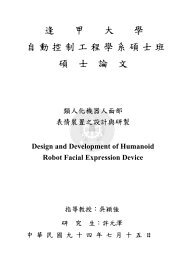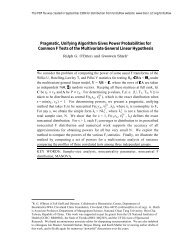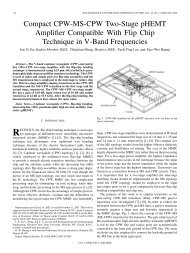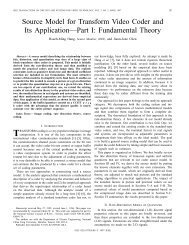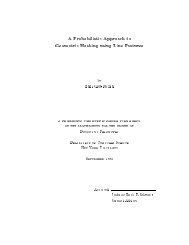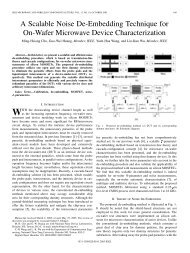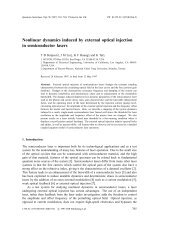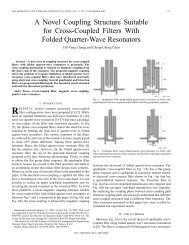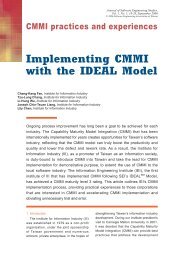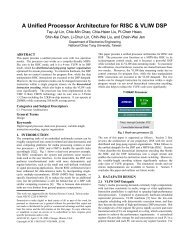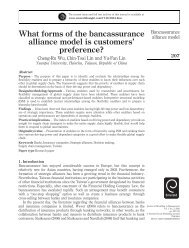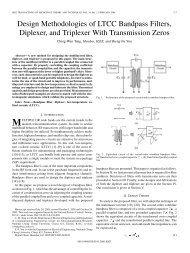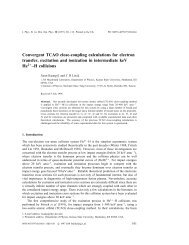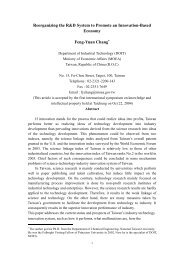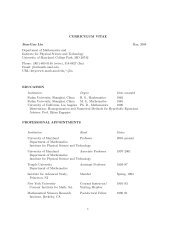Awards
Awards
Awards
You also want an ePaper? Increase the reach of your titles
YUMPU automatically turns print PDFs into web optimized ePapers that Google loves.
7.1.1 Organization – Meetings are organized according to IEEE regulations. All<br />
meetings are open on an equal basis to all IEEE and Society members.<br />
Registration fees at Society meetings may differ for the various grades of IEEE<br />
and Society members and be higher for non-members.<br />
7.1.2 Papers Selection – At meetings sponsored by the Society or in which it<br />
participates, the methods of selection of papers for presentation, and the publications<br />
procedures are consistent with IEEE regulations. The Society, through<br />
the Committees within the Technical Activities Council, offers guidance in the<br />
solicitation and review of papers and in organizing and moderating sessions at<br />
meetings.<br />
7.2 Publications – The Society, subject to the editorial and fiscal policies of the IEEE,<br />
publishes magazines, transactions, journals and other technical materials, such as leading-edge<br />
technical articles, tutorials, conference papers, etc. Fees charged for such<br />
publications may be higher for non-member subscribers and purchasers than for<br />
Society members.<br />
7.3 Education – Principal educational activities include basic and continuing education<br />
programs.<br />
Article 8 - Amendments<br />
8.1 Constitution<br />
8.1.1 Origin – Amendments to this Constitution may be initiated by:<br />
• Proposal approved by the BoG.<br />
• Petition submitted to the President by a minimum of 100 Members.<br />
8.1.2 Procedure on Proposals – Proposed amendments to the Constitution<br />
must be approved by a two-thirds vote of all the voting members of the BoG.<br />
Amendments are subject to the approval of the IEEE Technical Activities Board<br />
(TAB). After approval by TAB, the proposed amendment will be published in the<br />
Society magazine, or directly mailed to the membership. The amendment<br />
becomes effective unless one percent (or more) of the membership objects in<br />
writing to the designated IEEE office within 60 days.<br />
8.1.3 Procedure on Petitions – When a petition for a proposed amendment is<br />
submitted, the BoG will prepare a summary statement. A recommendation, for or<br />
against adoption, must be approved by a two-thirds vote of all the voting members<br />
of the BoG. The petition, summary statement, and recommendation are subject<br />
to approval by the IEEE TAB. After approval by TAB, the proposed amendment<br />
will be published in the Society magazine, or directly mailed to the membership.<br />
The amendment becomes effective unless one percent (or more) of the<br />
membership objects in writing to the designated IEEE office within 60 days.<br />
8.1.4 Objections – If one percent objects, a ballot with the proposed amendment<br />
will be mailed to all voting members of the Society. A return date of at<br />
least 60 days will be allowed. Proposed amendments must be approved by twothirds<br />
of the returned ballots..<br />
8.1.5 Amendments – Changes will become effective 60 days after all necessary<br />
approvals and notifications.<br />
8.2 Bylaws – Revisions and proposed amendments to the Bylaws must be approved<br />
by a two-thirds vote of BoG members in attendance, with a quorum present.<br />
W W W . C O M S O C . O R G 69



